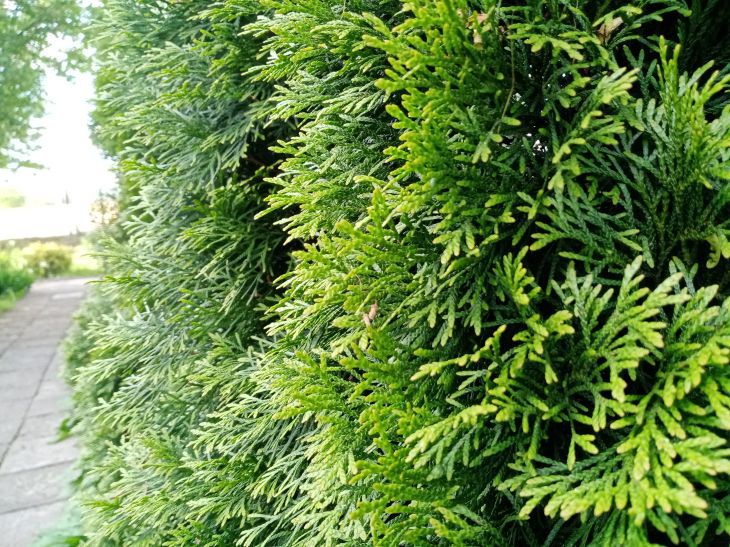Thuja is a beautiful and popular coniferous plant that decorates many gardens and plots.
But sometimes the thuja can begin to dry out and turn yellow, which indicates its poor condition.
Why does this happen and how can you save the thuja from dying?
Reasons for thuja drying out
There are many factors that can negatively affect the health of thuja. Among them are the following.
• Incorrect planting. Thuja needs well-drained, fertile and acidic soil. If the soil is too dry, clayey or calcareous, thuja may suffer from a lack of moisture and nutrients.

• Lack or excess of moisture. Thuja likes moderate watering, especially in hot weather. But if water stagnates in the roots or on the soil surface, this can lead to root rot and fungal diseases.
• Sunburn. Thuja prefers to grow in partial shade or in a sunny place with protection from direct rays. If thuja is exposed to strong ultraviolet radiation, its needles can burn and dry out.
• Diseases and pests. Thuja can be attacked by various insects and microorganisms that damage its tissues and suck out the juices. Among the most dangerous enemies of thuja are thuja aphids, mites, scale insects, root rot, rust and late blight.
• Lack of micro- and macroelements. Thuja requires regular fertilizing with complex fertilizers for conifers. If thuja does not receive enough nitrogen, phosphorus, potassium, iron and other elements, its needles may change color and fall off.
Methods of saving thuja
If you notice that your thuja has started to dry out, do not rush to throw it away. There are several ways that can help it recover.
• Trim damaged parts. Using pruning shears, carefully remove all dry and yellow branches and needles. Treat the cuts with garden pitch or brilliant green to prevent infections.
• Reducing the height. To improve the circulation of juices and reduce the load on the roots, cut the top of the thuja by 10-15 cm. Also cut off too long or thick branches. Do not forget to process the cuts.
• Improving the soil. Feed the thuja with a complex fertilizer for conifers according to the instructions on the package. You can also add acidic peat or sawdust to the soil around the trunk to increase acidity and moisture retention.
• Watering regulation. Water the thuja moderately but regularly, especially in hot weather. Avoid stagnation of water in the roots and on the soil surface. Check the soil moisture before watering.
• Sun protection. If the thuja grows in an open sunny place, create shade for it using an umbrella, fabric or net. You can also transplant the thuja to a more protected place.
• Control of diseases and pests. Inspect the thuja for insects or signs of infection. If you find a problem, treat the thuja with a special preparation, such as actara, phytosporin or Bordeaux mixture.
By following these simple rules, you can save your thuja from drying out and restore its health and beauty.








